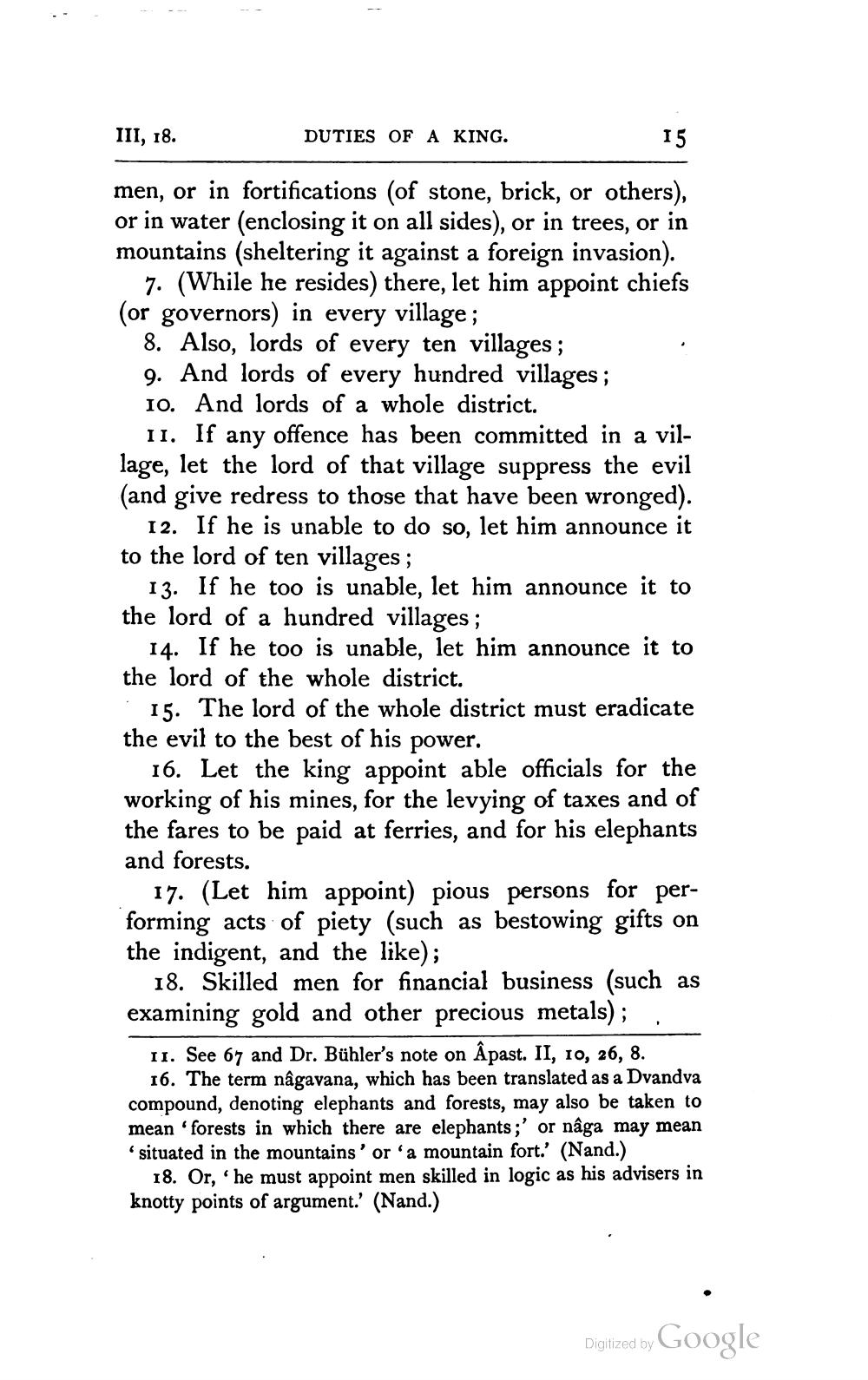________________
III, 18.
DUTIES OF A KING.
15
men, or in fortifications (of stone, brick, or others), or in water (enclosing it on all sides), or in trees, or in mountains (sheltering it against a foreign invasion).
7. (While he resides) there, let him appoint chiefs (or governors) in every village;
8. Also, lords of every ten villages; 9. And lords of every hundred villages ; 10. And lords of a whole district.
11. If any offence has been committed in a village, let the lord of that village suppress the evil (and give redress to those that have been wronged).
12. If he is unable to do so, let him announce it to the lord of ten villages;
13. If he too is unable, let him announce it to the lord of a hundred villages ;
14. If he too is unable, let him announce it to the lord of the whole district.
15. The lord of the whole district must eradicate the evil to the best of his power.
16. Let the king appoint able officials for the working of his mines, for the levying of taxes and of the fares to be paid at ferries, and for his elephants and forests.
17. (Let him appoint) pious persons for performing acts of piety (such as bestowing gifts on the indigent, and the like);
18. Skilled men for financial business (such as examining gold and other precious metals) ; ,
11. See 67 and Dr. Bühler's note on Åpast. II, 10, 26, 8.
16. The term nâgavana, which has been translated as a Dvandva compound, denoting elephants and forests, may also be taken to mean 'forests in which there are elephants;' or nâga may mean situated in the mountains' or a mountain fort.' (Nand.)
18. Or, he must appoint men skilled in logic as his advisers in knotty points of argument.' (Nand.)
Digitized by Google




